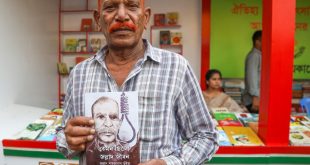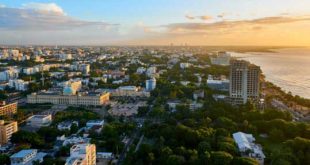LILONGWE, Malawi, Jun 21 (IPS) – After El Niño-induced floods and devastating drought, roughly two in five people in Malawi – a country of some 20 million people – are now facing the looming prospect of acute hunger by the end of the year.
At particular risk is the progress Malawi has made to improve maternal and infant nutrition, especially during the critical window of a child’s first 1,000 days.
Yet, facing similar challenges in the past, I have seen with my own eyes how international development aid can uplift and build the resilience of even the most vulnerable communities.
Concessional finance from the World Bank’s International Development Association (IDA), for instance, has previously helped millions of Malawians access food, improve nutrition, and rebuild agricultural livelihoods in the aftermath of shocks. With its focus on addressing the most urgent long- and short-term challenges, the IDA is one of the greatest allies of low-income, climate-vulnerable countries.
However, conditions not of our own making are exacerbating the hunger challenges in Malawi and across the African continent, while simultaneously holding back governments from responding effectively.
Malawi’s external debt servicing alone, for example, will take up an estimated US$ 147 million this year, just over five percent of total government spending. This is money that would better serve the country in the long run as investments into building the resilience of smallholder farmers to safeguard food and income security against rising climate shocks.
In light of these compounding challenges, we urgently need donor governments to double their contributions to the IDA in its upcoming replenishment, without which countries like Malawi will simply lack the resources to break the cycle of crises.
Food systems in the countries receiving support from the IDA, where infrastructure and national resilience is already precarious, have been more acutely affected by recent shocks than elsewhere.
We already know that one in three IDA nations are now poorer than before the Covid-19 pandemic, while the cost of recent climate disasters has doubled over the past decade, and will continue to rise. These shocks are devastating setbacks to attempts to develop long-term resilience and foster agricultural development for food and nutrition security and rural livelihoods.
Yet, just as these countries are facing arguably greater challenges than ever before, the amount of funding provided via the IDA has stalled – and in some cases, begun to decline.
For almost a decade, contributions to the IDA have flatlined, which means financial support from the wealthiest countries in real terms has fallen as many countries have cut aid budgets.
And the results of this downturn in funding are now playing out on the ground. Over the past two replenishment cycles, for example, the number of food insecure people in IDA countries has doubled – a clear sign that donor countries must rapidly reverse course to save lives and economies worldwide.
In the face of mounting challenges, the IDA can still be a driver for positive change in many of the world’s most vulnerable contexts, but only with the enhanced support of the foremost donor countries.
Momentum for tackling the hunger crisis – which ultimately spans borders, cultures, and economies – is already growing, with the formation of a Global Alliance Against Hunger and Poverty ahead of the G20 meetings in Brazil this year.
Donor governments must now make up ground, rising to the scale and urgency of the food security challenge ahead of us by doubling their funding for one of the most potent solutions against hunger and poverty.
The IDA is one of the most proven and effective aid providers the world possesses today and will be vital in delivering the vision of a hunger- and poverty-free world.
With greater funding, the IDA can support the long-term investments needed to strengthen national food systems, while also breaking the cycle of crises that currently hold back the most vulnerable nations.
At the same time, adequately replenishing the IDA will be critical in achieving both the UN Sustainable Development Goals (SDGs), and the World Bank’s own mission to end poverty – both of which rely on sustainable agricultural development that allows for healthy people and planet.
Therefore, as the IDA meets in Nepal, Malawi and other IDA countries urgently need donor governments to step up both financially and strategically, directing more funding towards nutrition and food security.
The return on this investment is a world with less hunger, poverty and inequality, the toll of which is ultimately borne by all of us.
Hon. Simplex Chithyola Banda is Minister of Finance & Economic Affairs, Malawi
IPS UN Bureau
Follow @IPSNewsUNBureau
Follow IPS News UN Bureau on Instagram
© Inter Press Service (2024) — All Rights ReservedOriginal source: Inter Press Service
 Top Naija News – Nigeria News, Nigerian News & Top Stories Top Naija News – Nigerian Newspapers, Nigerian News. topnaijanews is a daily Nigerian newspaper covering Latest News, Breaking News, Entertainment, Sports, Lifestyle and Politics.
Top Naija News – Nigeria News, Nigerian News & Top Stories Top Naija News – Nigerian Newspapers, Nigerian News. topnaijanews is a daily Nigerian newspaper covering Latest News, Breaking News, Entertainment, Sports, Lifestyle and Politics.




